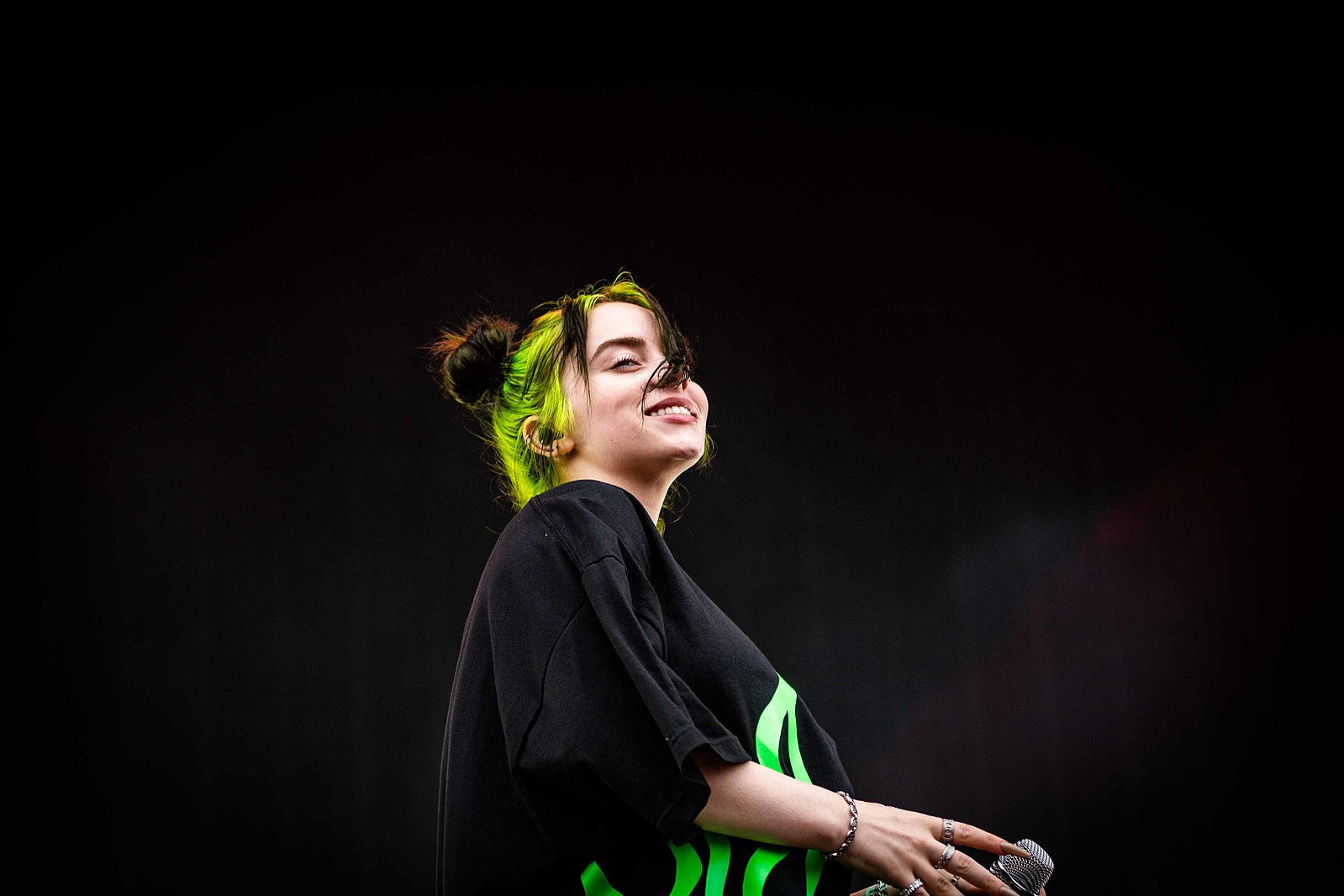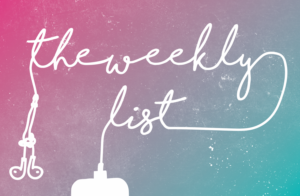Following her debut album WHEN WE ALL FALL ASLEEP, WHERE DO WE GO? (2019), Billie Eilish became a household name, winning multiple Grammy Awards and dominating charts. This year, she returns with Happier Than Ever, a follow-up project currently scheduled to be released in July. The album’s promotion so far has presented a changed Eilish; gone are the green hair streaks and darker artistic style that marked her debut, replaced instead by platinum blonde hair and a color palette akin to Ariana Grande’s Sweetener (2018).
It’s a distinct stylistic change that might hint at a shift in music style as well. At least that’s the case with her newly released single, “Your Power.” “Your Power” was released alongside the news of Happier Than Ever, and it will be the album’s third single, following “My Future” and “Therefore I Am.” The song is also distinctly different from the ones that launched Eilish into stardom: it lacks the witty smart mouth of “Bad Guy,” the macabre metaphors of “Bury a Friend,” or the quiet rage of “You Should See Me in a Crown.” Filled with soft crooning and lullaby-like instrumentals, “Your Power” doesn’t try to hide behind Eilish’s previous artifices, instead offering a more honest, barren reflection of a toxic relationship.
“Your Power” is mostly dedicated towards an abuser, one who Eilish warns to stop overstepping other people’s boundaries (“Try not to abuse your power,” she repeatedly tells them in the chorus). While the lyrics attempt to remain vague for the most part, there is a clear storyline in which Eilish reflects upon this person’s involvement with an unnamed woman, where their relationship was marked by an imbalance of power and predatory behaviors (“She said you were a hero / You played the part / But you ruined her in a year / Don’t act like it was hard”). It’s unclear whether the woman is Eilish or someone else: although the song often refers to the abuser’s partner as “she,” Eilish also establishes that she knows them in the second verse (“I thought that I was special / You made me feel / Like it was my fault you were the devil”). However, she quickly follows it up by returning to the unnamed “she” without providing further explanation. Perhaps it doesn’t need one: whether the “I” and the “she” are really both Eilish or two distinct people is part of the ambivalence and vagueness that makes the song work so well. “Your Power” is a track open to multiple interpretations at times—it knows how to offer intimate reflections while still giving listeners space to reflect on their own experiences.
Aside from the relationship the song roots itself in, “Your Power” hints at a possible theme for Happier Than Ever: life after stardom. Since the success of her debut, many of Eilish’s songs have discussed how her world changed with fame. “Everything I Wanted” reflected on discovering your dreams weren’t what they seemed to be, “My Future” looked optimistically at the life ahead of her, and “Therefore I Am” offered an unashamed “haters gonna hate” type of anthem. In each of them, however, there is a common link of living life after reaching fame, whether it’s loneliness, self-growth, disappointment, judgement, or other outside pressures. “Your Power” doesn’t stray too far from this thread, hinting at how toxic relationships can also exist in this new life (“Will you only feel bad if it turns out / That they kill your contract?”). It’s an interesting similarity between Eilish’s new track and her other post-stardom songs, especially given that they all sound dramatically different from one another, and it will be curious to see if the theme is further explored in the rest of the album.
Leaving behind the electro-pop sounds and the horror imagery, “Your Power” might not have been the comeback that everyone expected from Eilish. However, the quieter acoustic track still packs powerful remarks in the singer’s signature soft-spoken tone and an exciting foreshadow of her upcoming album. It’s a whole different side of Eilish, and it’s impossible to tell for sure what she will deliver later this year.






